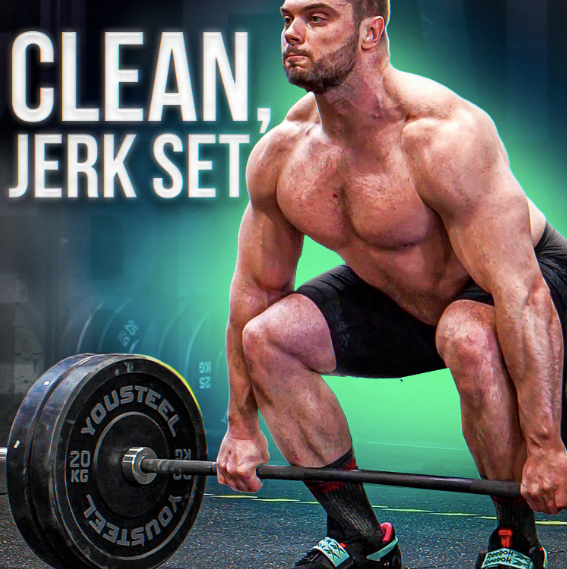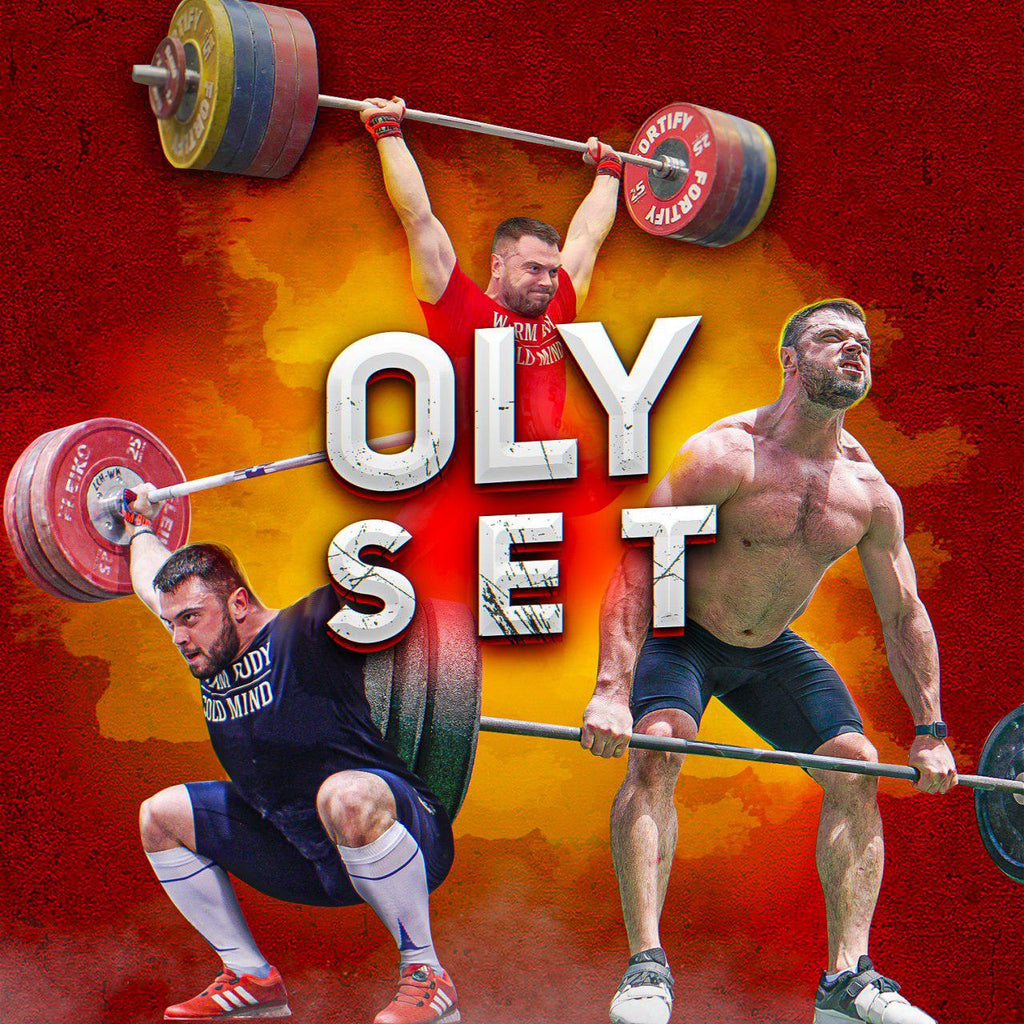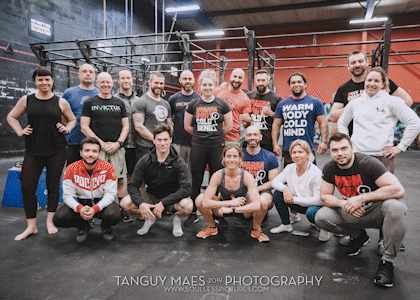Absolutely phenomenal program! The PULL & SQUAT CYCLE has taken my training to the next level. As a gym trainer, I'm always looking for structured plans that deliver results — and this one blew me away.
The progression was smart, the workouts were challenging yet doable, and my form, strength, and endurance have all improved noticeably. I especially loved how the plan focused on proper technique, keeping it injury-free yet intense.
By the end of the cycle, I felt stronger, leaner, and way more confident in my lifts — especially in squats and deadlifts. Big respect to the creators for designing such a solid and science-backed program.
Highly recommend this to anyone serious about building real, functional strength! Already looking forward to the next cycle.
The program has been Awesome! Really enjoy the variety of exercises and drills to improve Weightlifting performance!
I’m an “intermediate” level lifter coming back from a spine injury that resulted in a numb right leg. I’m having to retrain my brain to tell my nerves how to work my leg. I am technically still rehabbing, so there are many things I have to modify. (Ex: I do hangs for everything since I’m not allowed to pull from the ground yet). I bought the beginners 12-week program since it’s technically been a full 14 month since I’ve been able to do ANY lifting and I wanted to start over with my new spine/altered leg. It’s been GREAT! I’m already seeing results in terms of feeling more total body connection on the lifts, more fluid movement, and even my leg has gotten a tad more mobile and reactive/quick. I know it’s not a rehab program, I say all that to say it still works with modifications!
I really enjoy the program, I wish that there was a excel version that I could put in the % to be able to keep track of the workouts without having to write them down into a book
Fantastic program.
I came from a background of just running 5x5 type programs into the ground.
the wave structure and diversity of squats and warm ups was very fun and it really broadend my skill in the gym. i am currently on week 9 of the program. so far i have pushed way past my previous squat 1rm and that also applies to my front squat (something i sorely needed to focus on but never got around to) and dead lift.
I plan to run the full 12 weeks and then put the program in my back pocket for my next off season.
5 out of 5 stars and great for anybody looking to build up their legs and squat skills without wasting time on one of the dumber squat programs floating around out there.
The both courses are phenomenal—clear, inspiring, and highly professional. Highly recommended!
I may not be lifting gold medal weights but I am hitting PBs every week. Thanks heap’s Oleksiy
+12kg in my 1RM.
I worked very well with this program, and the results were amazing. The only days with 30-45 minute workouts were tiring for me (too short workouts), but I supplemented it with the program full-body mobility for weightlifting). To sum up a nice 5 weeks, I will return to this program ;)
SUPPLEMENTS MANUAL it's for those starting an adventure with supplementation. Trainers who already have knowledge of athlete nutrition won't learn anything new.
For beginners 5/5.
Hi! Thank you for your feedback and honest opinion!
You’re absolutely right - the Supplements Manual is designed primarily for beginners who are just starting their journey with sports nutrition. Our goal was to create a clear and practical guide that lays a solid foundation for safe and effective supplementation.
For more experienced athletes and coaches, we believe that advanced supplementation should be approached individually and based on professional medical guidance, including blood work and other diagnostic analyses. That’s why we intentionally kept this guide focused on fundamentals and general safety.
We truly appreciate your support and are always open to suggestions on what you’d like to see next.
Team Torokhtiy 💪
Good workout programme, good range of movements, helpful videos to watch, overall enjoy doing these workouts
Considero excelente este programa para levantadores de pesas intermedios y avanzados. Los ejercicios son retadores y escalados para conseguir objetivos semanales. Las cargas de peso son progresivas cada semana y con el fin de alcanzar o superar tu RM en snatch y clean & jerk. Una programación fácil de leer y entender; además, incluye videos tutoriales para ejecutar cada ejercicio o movimiento. En mi experiencia, logré rebasar mis porcentajes máximos en arranque olímpico y envión. Sin duda, recomiendo este programa a todo levantador de pesas aficionado que desee mejorar su técnica y superar sus récords en halterofilia. ¡Saludos, halterófilos!
Great book worth the price of admission.
the book is stacked with great information.
my favortie parts:
good insights from Alexs,
plethora of pictures and videos to back up or sow in much better detail even minor parts of the technique,
each chapter has exercises to help build the skills you just learned,
check list of cues,
downsides: really the only thing i found myself looking for more was getting under the bar in the clean and snatch but literally every part fo the movement beside that is covered in great depth
for a guy like me who has no actual education in the oly lifts outside of youtube this has helped a lot in getting me to understand how to do these lifts more competently.
Hi, thanks for the program! I've started it and I'm at my second week. As I am rather old, or let me say 67 years young, the weights I use are not heavy. However I make all the exercises for the session. And as I usually make a group WL session per week, your sessions are 2 per week, not 3. That's all for now and thanks again. Best regards, Aneliya
Super program ja som si ho pridal ako doplnok k programu vzpierania na posilnenie kondície a stredu tela.Je to dobrý program.
I would advice the Squat program to everyone who has hit a plateau with squats (both front and back), and decides to dedicate some solid weeks of training to building general strength for their weightlifting. Of course, it is not aimed at Elite weightlifters, but its flexible structure can be adapted from beginners to fairly advanced athletes. Since it is a 3 day/week program (plus one accessory work day), it is also adaptable to functional training or CrossFit.
It allowed me to reach very heavy weights, considering my own bodyweight :)
Extremely high value for money!













